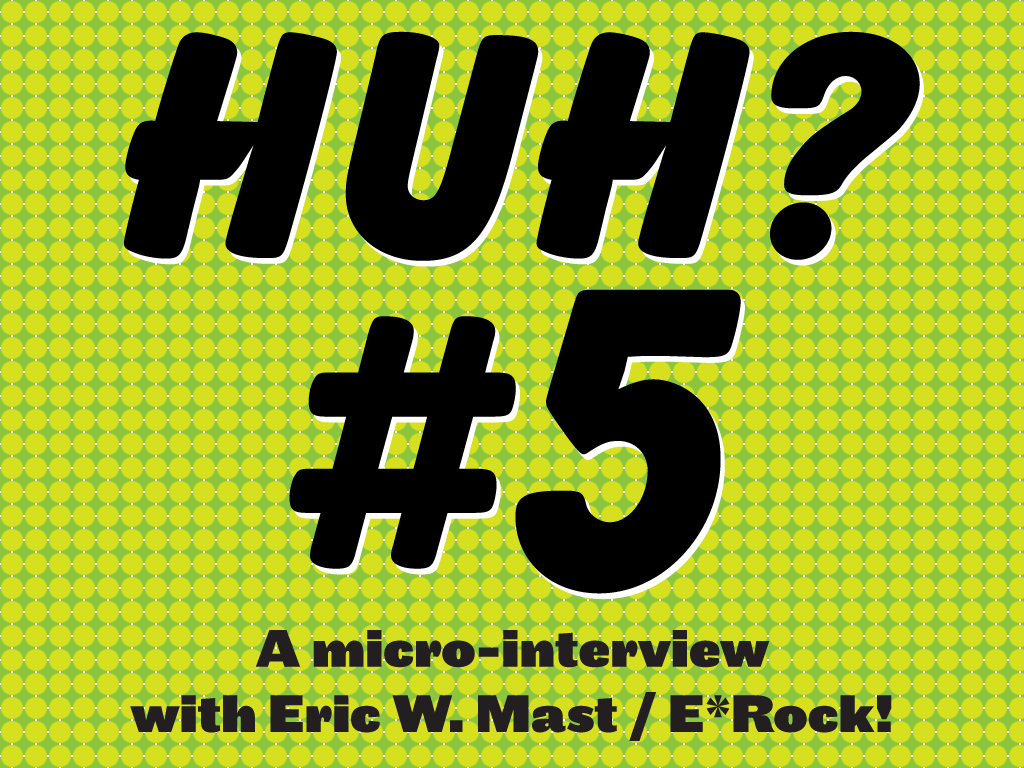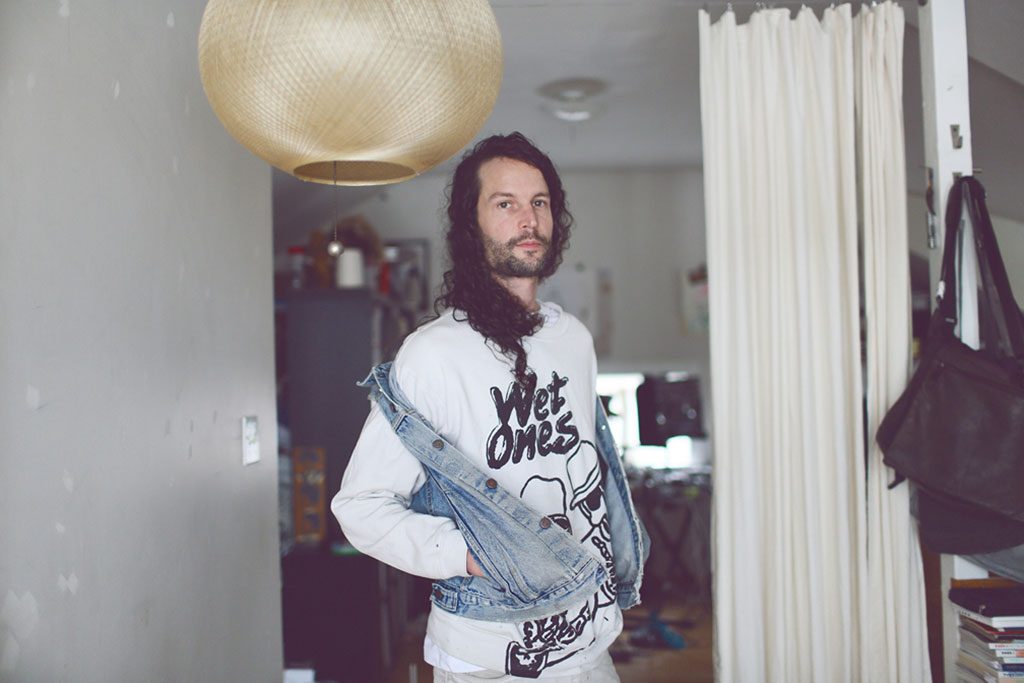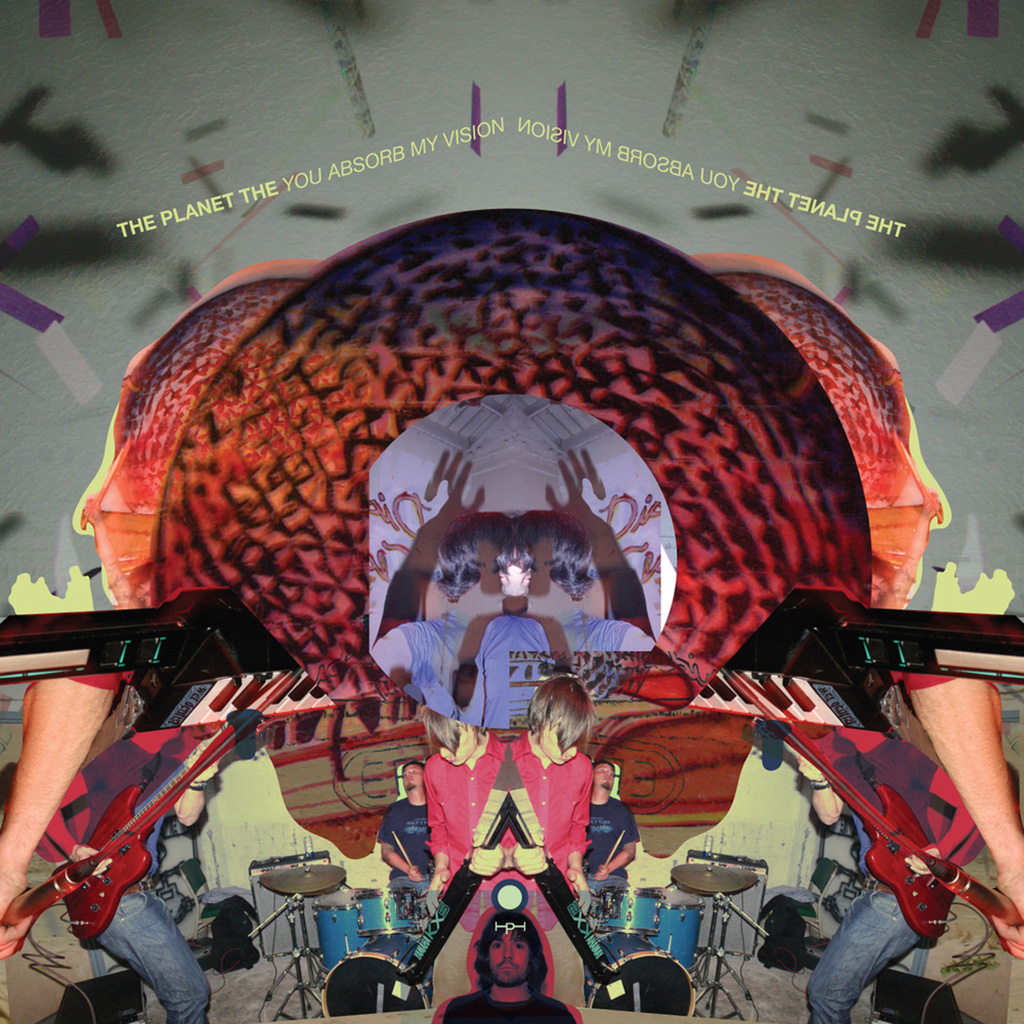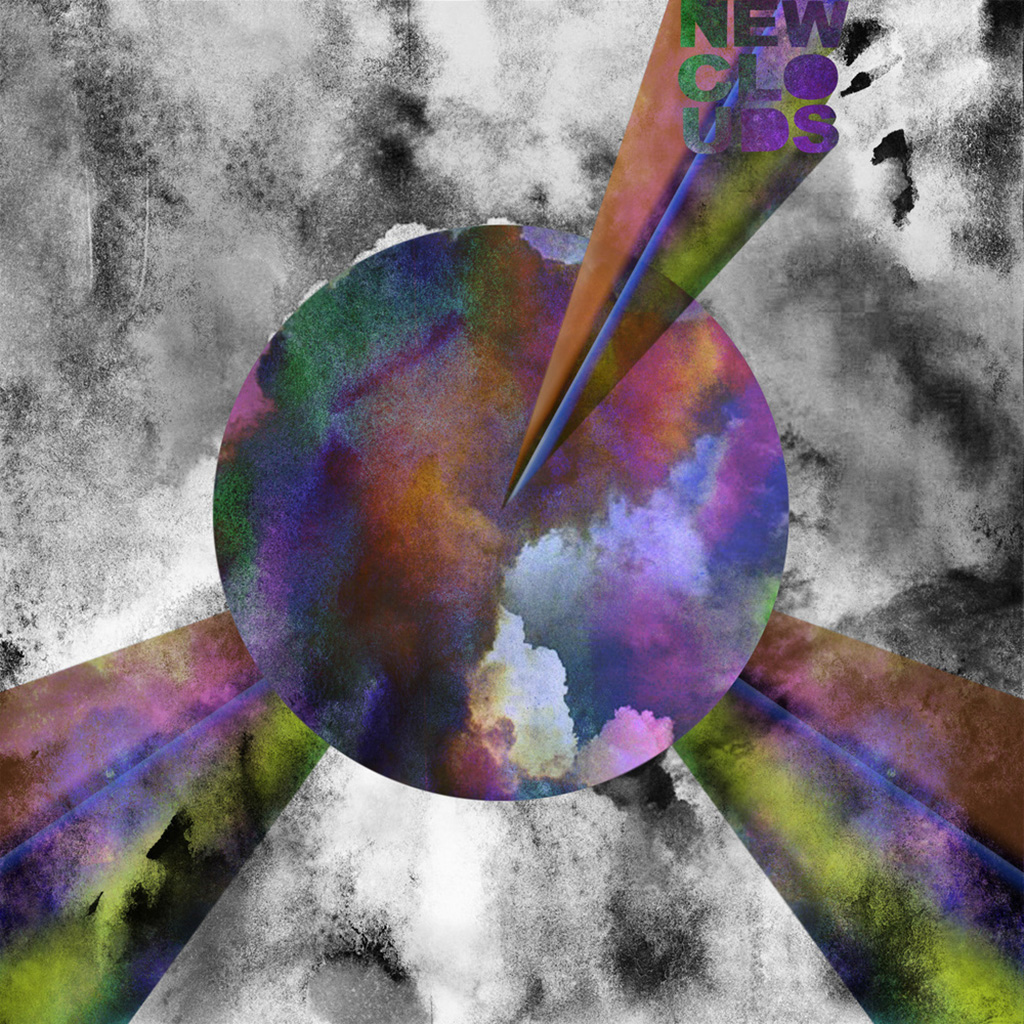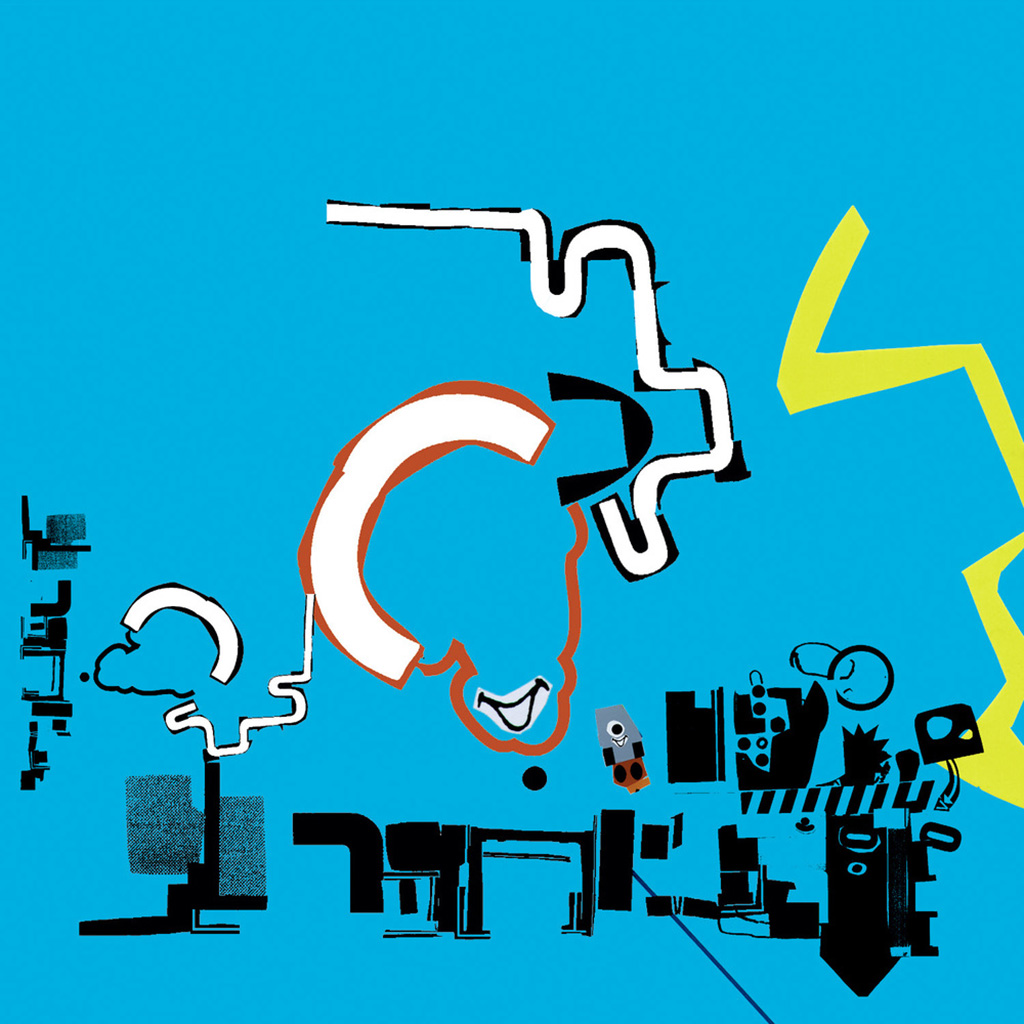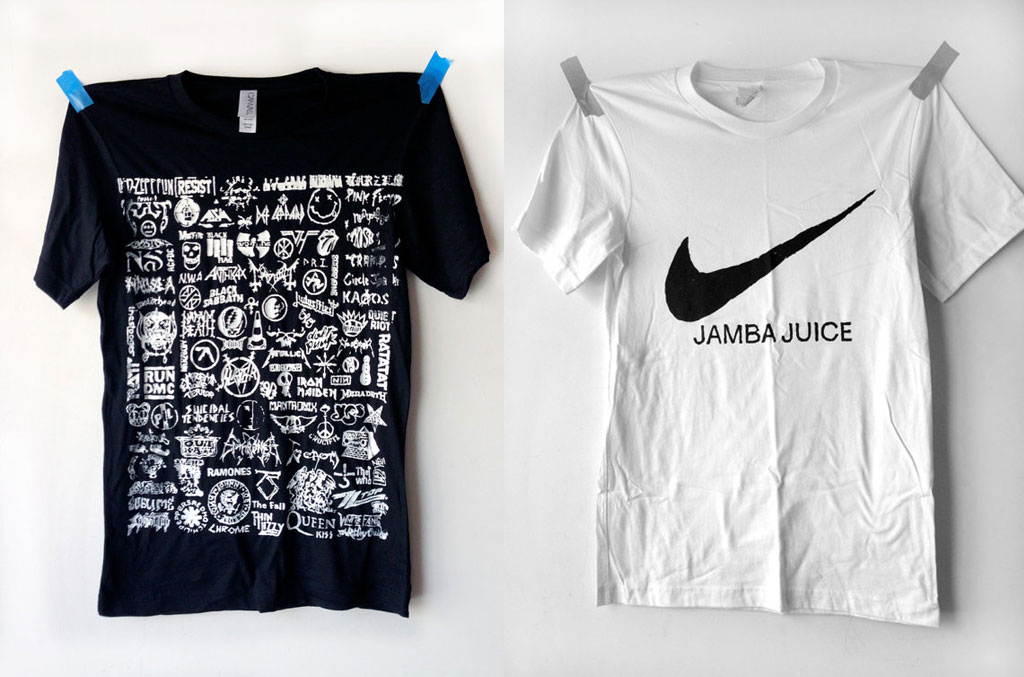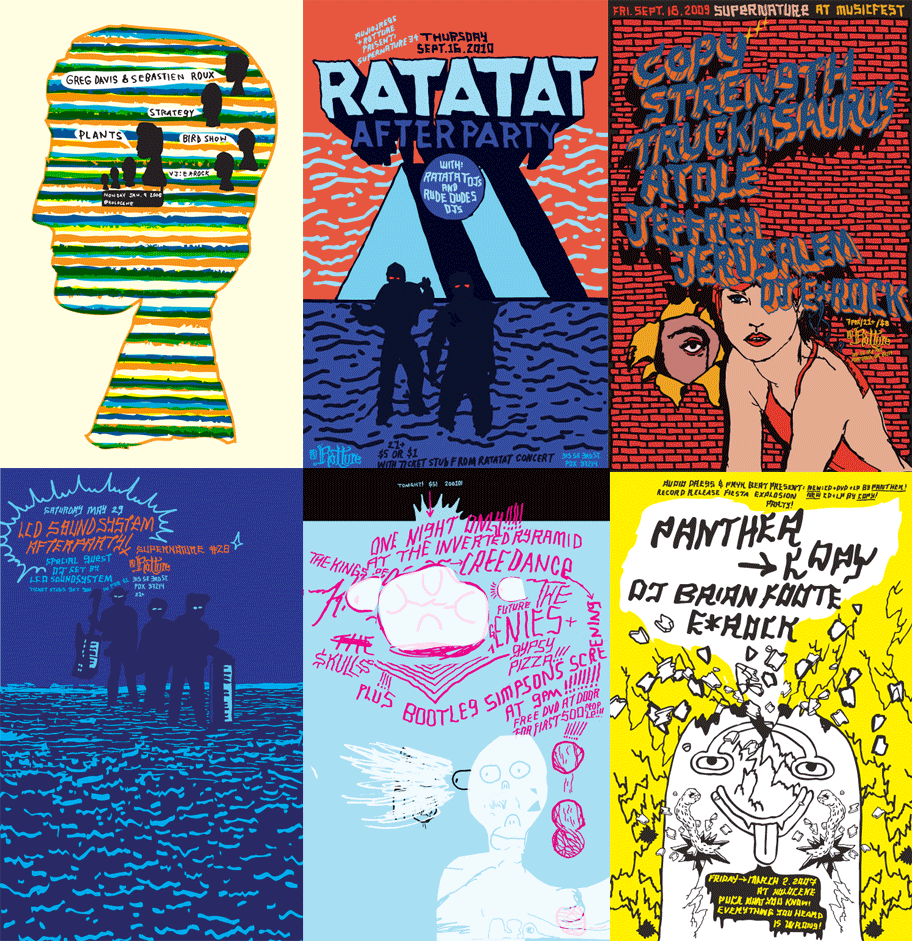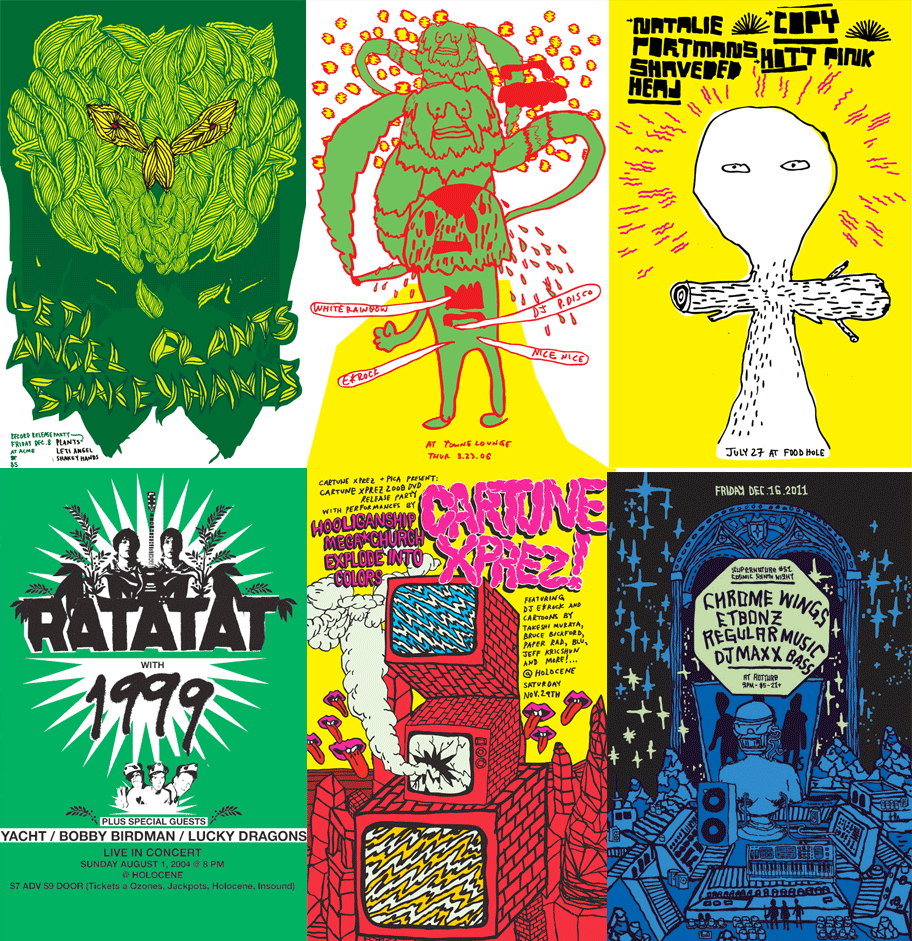Eric W. Mast (aka E*Rock) lives and works in Portland, OR as a “musician, artist, disk jockey, and digital hustler”. VCFA Chair Ian Lynam sits down to talk with his old roommate and dear friend about art, design, music and the role of humor in his work. Eric is a prolific designer, as well as the owner of the record label Audio Dregs, a small label which introduced the world to Ratatat, Lullatone, Melodium, Lineland, and many others.
1. You once said that you “paint like a designer and design like a painter”. What the hell does that mean?
I was referring more to the way of looking at images. Generally I would focus on handcrafting the content with typography as a secondary thing that would not intrude on the design much, so it was sort of like an art piece where the type would stay out of the way, but it wasn’t really “illustrating” in any traditional sort of way per say. I’m not sure I paint like that anymore, this was more an idea that I had like 15 years ago.
You could say I approach music more like an artist than a musician also. Generally I like a band or a music project to have some sort of concept to it, and I’m not a trained musician. But artists tend to think of me as a music person. I guess I tend to do things backwards.
2. Can you tell me the story of how you came to found your record label Audio Dregs?
I used to make cassettes of my music and then friends music, just like duplicating and designing covers so that I could share with other friends. At some point I realized that this is what a record label does and started taking it more seriously.
Then that lead to pressing records and CDs and working with other artists to help bring them to a wider audience, but also it was a way to help artists grow and develop and get better at what they do.
It also became a platform for learning to design album covers, create animated music videos, web sites, show other people’s artwork, meeting new people… It was a hands-on DIY sort of thing and at some point it taught me a bit about business and was able to sustain itself.
Now the music industry is quite different though, so I can only afford the time and money to release other peoples’ music maybe once per year. There are a tons of platforms for all those types of creative endeavors and digital communities and music for most people has become a hobby again. Now everyone’s label is called “Bandcamp.” The difference is this label does not give you constructive criticism, help create a community or help promote you, but it is more democratic.
3. How about Fryk Beat?
The idea for that record label was a different style of music mostly, trying to build up local artists, and I thought I would have other people helping me fund and run the label. At the time I was doing a lot more freelance design work so I put a bunch of money into it but it but turned out that I had to do everything myself and I lost quite a bit of money. We had a good time though so no regrets. I don’t have the money to keep that imprint alive any more though.
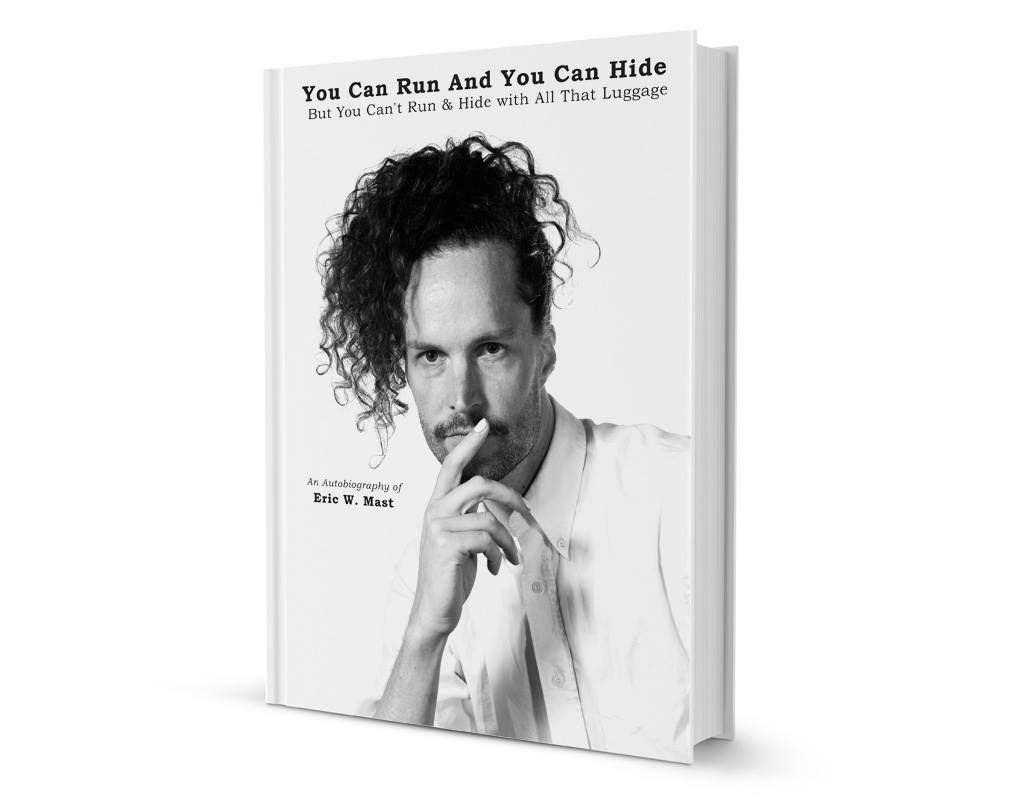
One of Eric’s 100 covers for autobiographies project
4. Humor seems to have had an exponential influence on/role in on your output across design, art, writing and video for the past decade, shifting from being semi-adornment to being very much at the core. Do you find yourself limited by the use of the sarcasm and irony?
I like humor yeah, it makes me laugh. In a lot of ways its how I relate to the world.
I think humor can be an excellent tool, in that if you make people laugh they tend to like you better and feel like you are on their side, empathize with you. At that point you can actually say things that you might not get away with otherwise, like a comedian can talk about sex even though its not socially acceptable; Dave Chapelle can talk about equality and race issues, and everyone is having a good time. Amy Schumer can take on feminist issues on mainstream television and people won’t turn the channel. Of course, those are exceptions, most comedy is terrible and mindless and I really dislike how America has to segregate comedy from intellectual issues of meaningful emotions. I love artwork or a movie that’s funny and serious and real, like dealing with issues of death but you can laugh at the same time. Or maybe the humor is really subtle.
Sarcasm and irony are pretty limited forms of humor, I can’t say I’m super-into either of those devices because they hide behind a sort of mask that can be insincere. Maybe I use them more than I think I do, but that’s not my intent anyway.
5. What is the story behind Dreem Street?
Dreem Street is a T-shirt line that I started with my friend Matthew Chambers. I met him like I met some of my other best friends over the years (names withheld), via trading zines. We basically started a band with money made on a collaborative oil painting that he sold… but Matt is a visual artist and doesn’t play music, so we didn’t make music and instead we put drawings on T-shirts. Its grown from there, and operates more like an art practice than a business because I’m not very good at business. We are doing an experimental sort of pop up shop/art show as Dreem Street in NYC in the fall of 2015.
6. What’s the most disgusting thing you’ve ever eaten?
I ordered “flamboyant chicken” at a Mexican restaurant in Cost Rica because the name was funny. They meant to say “flambé”, I think, because they doused my meal with lighter fluid and set it on fire. After they put it out the meal was still soaked and tasted like lighter fluid and was entirely inedible. I probably would have gotten sick if I had eaten it.
The eggs with fetal chickens in them that I had in Vietnam were pretty gross also, but at least I could eat those. You just had to spit out the tiny beaks because they were the most developed part.
That’s disgusting! Thanks, Eric!
Stay tuned for the next installment of “HUH?”, coming your way soon!best Running shoes brand | Nike Shoes, Sneakers & Accessories

